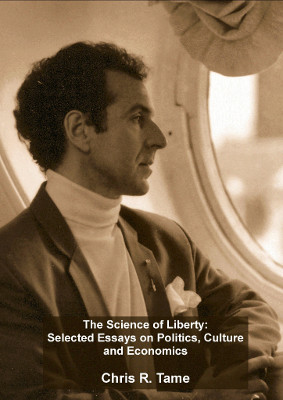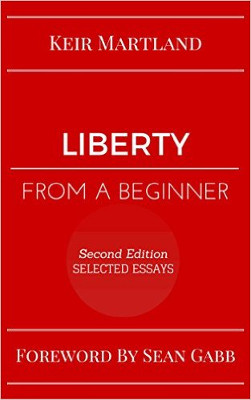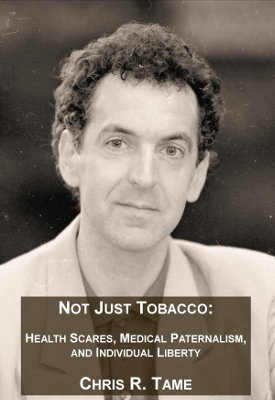
|
THE LIBERTARIAN ENTERPRISE Number 875, June 5, 2016 A nasty-tempered, cackling, sticky- fingered hag of a mass murderer whom millions of gullible idiots worship.
Self-Medication: Special to L. Neil Smith's The Libertarian Enterprise (1st June 2016) For the past twenty years, the mainstream debate on drug relegalisation has organised itself round four chief positions. First, there is the libertarian position. We ought to have the right to do with our minds and bodies as we please. This includes the enjoyment of chemical pleasures. If pleasure comes at a risk, that is our problem. Second, there are the puritans. Some of these believe that pleasure is bad, and that they have an obligation and a right to stop it wherever possible. Some—and this is not always just a front for hatred of pleasure—look at the risks and derive from these the obligation and right to control others for their own benefit. Third, there are the opportunists. The War on Drugs has become a path to income and status. Prohibiting drugs does not make then unavailable, but enables the growth of criminal enterprises that would not otherwise exist. This growth in turn legitimises the growth of opposing bureaucracies of enforcement that employ tens or hundreds of thousands at the national and international level. Again in turn, the enforcers are open to bribes from the criminals. Then there are the bankers who launder the proceeds, or use the consequent War on Money Laundering to legitimise controls that entrench their own position in the financial markets. Fourth, there are the pragmatic libertarians. These may or may not be ideological libertarians. Their argument begins with a cost-benefit analysis of the present system, and ends with the claim that there would be fewer deaths and less crime and corruption if the War on Drugs was called off. My own position is both one and four. I have trouble understanding what drives the puritans, and I despise the opportunists. But I am drawn increasingly to an advance on my stated positions—an advance that might appeal to people who do not identify as libertarians, but who are not committed to positions two and three.. I believe we should have the right not just to make ourselves immediately happy, but also to try to cure ourselves of illness. I believe that ending the War on Drugs would benefit the world not only in the negative sense, of removing unnecessary evils, but also in the positive sense, of quickening medical progress. A few years ago, someone I know fell into a serious depression. If he had various reasons for unhappiness, his depression was an excessive response. He was frightened to go to his doctor, because that would go on his medical records, and that might harm his future prospects. Perhaps this was an unreasonable fear. But it is not unusual. So I went to a website based in India, and bought a three month supply of fluoxetine, which is the generic name for Prozac. I know that Prozac is not always what its inventers claimed it to be. Even so, within a month, my friend was restored to a state of mind in which he was better able to deal with the real problems in his life. The doctors like to tell us that diagnosis and treatment are difficult matters that require a long education to do properly. There is some truth in this. I believe the symptoms of kidney stones and stomach cancer have much in common, and the treatment for one will do nothing for the other. On the other hand, most diagnoses are not difficult. A Google search will usually do at least as well as a visit to a general practitioner. Modern diagnostic machines are just computers with various kinds of input devices. I might need a specialist to tell me if I had a brain tumour, and certainly a specialist to remove it. I think I could diagnose my own diabetes or arthritis, and I could then choose with reasonable competence what, if any, medications for treating it. Instead, we have laws that ban the legitimate supply of most drugs, or turn the supply into a medical monopoly. Doctors will not usually prescribe without a diagnosis. Getting a medical diagnosis is expensive or involves a long wait. Even then, doctors are often mean with prescribing. By a combination of training and their own personalities, they incline to puritanism. Or they are answerable for how they prescribe to puritanical bureaucracies. This makes them especially mean with prescribing pain relief. Drugs like Tramadol may be addictive, and there may be dangerous side effects. That does not justify leaving old people with bone disorders in constant pain. I see no reason why the terminally ill should not be sent off in a blaze of opium-fuelled euphoria, or why the depressed should not be allowed, by trial and error, to find whatever drug or cocktail of drugs will restore the balance of their minds. I repeat—doctors are hardly redundant. But doctors are a limited resource. And, however, funded, health budgets are always under pressure. Leaving us to our own diagnoses and medications would allow the medical professions—such as they ought to exist as they do—to focus on those areas where they are of actual use. So far as I can tell, most general practitioners spend most of their time handing out advice and prescriptions that could, with little harm, be left to pharmacists or the Internet. I come to the positive side of my argument. I recently gave a lecture on Mill's Essay on Liberty. One of the many passages in this work that makes you stop and reread puts the case for what he calls "experiments of living." He says, in Chapter III:
In virtually all countries, there are pharmaceutical regulations that require testing of new products before they can be made generally available. These are justified by reminders of what can happen when a new drug fails. Thalidomide is the usual example—a drug to treat morning sickness that caused many thousands of children to be born deformed. It is an argument for putting elsewhere that the compulsory testing schemes we have slow down the introduction of new treatments, and that thousands are saved from side effects at the cost of millions who die for lack of treatment. But the principle of testing is a good one. All drugs are complex things. So too the human body. No one can know in advance what the larger effects will be of a new treatment. Now, very often, new uses will be found for existing treatments. These are generally found by accident. I believe that Viagra was developed as a treatment for heart disease. Only when tested was it revealed as a powerful aphrodisiac. Aspirin had been on sale for a century before anyone realised it might be useful for preventing or treating strokes. A few years ago, someone discovered by accident that bicarbonate of soda was a safe and effective treatment for certain kinds of kidney failure. Or a medical consensus may be wrong. For nearly half a century, we have been told that obesity is caused by eating too many calories, and that the best diet for diabetes is high in carbohydrate and low in fat. These consensus appear to be falling apart as I write. Or there is the dead consensus that peptic ulcers are caused by lifestyle and hard to treat. We know now that they are often caused by an infection. Or there is the growing belief that much heart disease is caused by a Vitamin B deficiency—calling in doubt the consensus on other risk factors. With the exception of dietary advice, these advances came from within the medical and pharmaceutical establishment. For any number of reasons, however, some already given, this is an establishment highly averse to innovation outside an established line of progress. The bacterium theory of ulcers was ridiculed until overwhelming evidence was produced. The Vitamin B theory was virtually suppressed for a generation. In justification, it is the duty of scientists to be sceptical of radical breaks from whatever seems already to be proven. But add professional monopolies to scepticism, and the result can be a slowing of progress. I return to the present dispute over dietary advice. The calorie and low fat theories have been disputed for a long time; but it is only because dietary advice has not been monopolised, and because of a public outcry, that this debate is now taking place within the relevant establishment. It would be a worthwhile change, I suggest, if all medical treatments and advice were subject to the same open testing and experiment. There is a natural limit to the number of accidental discoveries and new departures we can expect from within the establishment. Medical progress would be quickened if every individual who so fancied were free to experiment on himself and communicate his real or apparent discoveries to the world. No doubt, some people would medicate themselves to death. But, as I said at the beginning of this essay, I am a libertarian, and I believe in the right to take risks. And some of these experiments, I have no doubt, would be as beneficial as the accidental discovery of morphine and penicillin, or the accidental discovery that people who had caught cow pox were immune from small pox. And so the debate on drugs should rightly include defences of the right to get high without having your front door kicked in by the police. But it should also include an awareness of the possibility that someone will find—say—that the right mix of aspirin, turmeric and nifedipine can cure cancer or extend our lives to five hundred years. We need more of Mill's "experiments of living," not fewer. We need a general right of self-diagnosis and of self-medication.
This site may receive compensation if a product is purchased |




